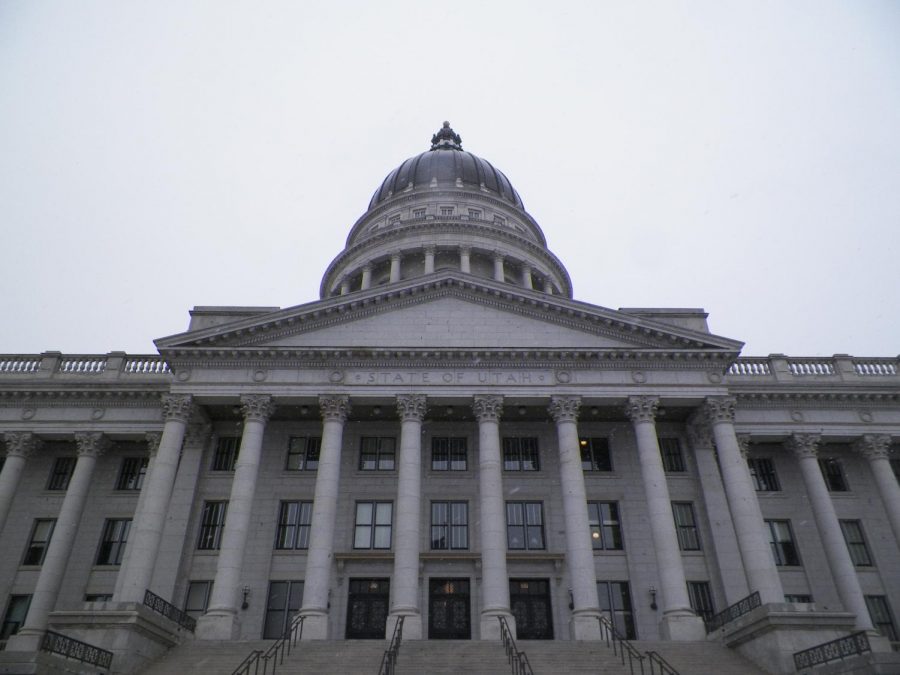Cushman: Utah Stands Out with Opportunities for Student Political Involvement
August 13, 2020
College is vital in turning young people into active constituents. While voter turnout increased by 11% among all Americans in 2018, voter turnout among college students had a 21% increase. Higher education pushes students to be civically engaged by giving them the knowledge and skills they need to understand where their beliefs fall on the ballot. As efforts to suppress the college vote are ongoing around the country, Utah stands out as a state that offers its university students the opportunity to be involved in state politics.
Easy Voter Registration and Vote-by-Mail
Widespread registration has been identified as one of the most effective ways colleges can engage their students in politics — and Utah’s voter registration process is simple even for first time voters and new state residents, requiring only one photo I.D. or two non-photo I.D.s. Registration can be completed online at vote.utah.gov and same-day registration is available at polling places.
Voting itself is also easily accessible to students. The U has a polling place on campus and other polling places within a fifteen-minute drive or thirty-minute bus ride away. Other states, however, actively try to suppress college students’ votes through strict voter I.D. laws, moving polling places away from campuses and even open hostility towards student voters. Thankfully, voting as a University of Utah student is easy, which is critical since college students are an underrepresented voting demographic — and it helps those from out of state establish residency.
Accessible Information and Involvement
A thriving press is one of the foundations of a healthy democracy, and Utah’s press is thriving. While most of the country is worried about keeping local journalism alive, Utah’s news outlets are well-funded and leading the charge in some important changes to the industry of journalism. The Salt Lake Tribune recently became the first legacy paper in the country to change to a nonprofit. Utah Policy and Deseret News, among others, also report on state and local news, and The Daily Utah Chronicle covers campus issues, so students have plenty of ways to stay informed.
Internships through the Hinckley Institute of Politics
The Hinckley Institute of Politics is totally unique to the University of Utah. It offers students opportunities to become directly involved in politics through internship programs in the Governor’s Office and the state legislature, as well as forums and classes to prepare them for those internships and help them understand Utah politics on a deeper level. More importantly, the institute provides those opportunities to students of all majors – not just those studying political science. Most campuses do not have anything like the Hinckley Institute, and most state governments do not allow students to intern at such a young age. There is something phenomenal about the fact that we allow 18- to 24-year-olds to help state representatives run Utah’s legislative session.
I had my first Hinckley internship during the second semester of my freshman year. It was like being thrown into the deep end of Utah politics, but I learned so much about the state’s political process because of my firsthand experience working in it. Having an internship on my resume at such a young age has also opened up the door to other opportunities in politics – something I would not have had at a different university or in a different state.
Volunteering on Local Campaigns
Utah also continually offers more informal opportunities for community involvement in politics. Volunteering on local campaigns – for anything from school board member to senator – is an easy way to expand your resume and collect service hours. All it takes is finding a candidate worthy of your support and signing up to knock on doors, make calls or even text your own contacts about their plans to vote.
University of Utah student Nikita Valdez spoke about volunteering with Ben McAdams’s first congressional campaign as a fast-paced, informative and opportunity-filled experience. Having grown up in Utah, she saw McAdams’s Democratic run as an opportunity to have a representative who better aligned with her own views. Valdez said her experience taught her skills she could apply to all areas of her life and helped her get involved in other political activities. Her experience is proof of Utah’s many opportunities for political involvement that allow students to impact their communities, learn important skills and prepare for their future careers.
Student involvement in politics helps us strengthen our resumes, make connections with important people and shape our communities. The University of Utah and the state at large are unique in offering so many pathways for students to become educated and get involved with local politics. In a place with so few obstacles, we have a responsibility to take advantage of these special opportunities and make sure student voices are heard.








